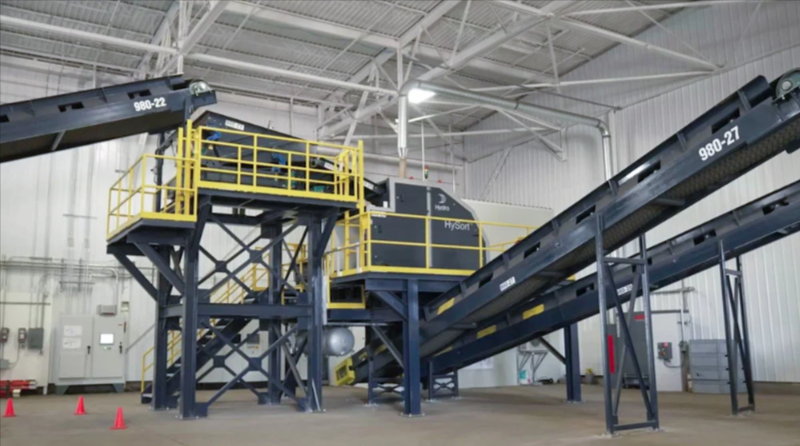

Alusort LLC, a 50/50 joint venture between Hydro and PADNOS, has launched operations of its new aluminium scrap sorting line, utilising cutting-edge HySort technology at PADNOS’s facility in Grandville, Michigan. This new line will supply Hydro’s recycling plants in Cassopolis and Henderson with raw post-consumer scrap, supporting the large-scale production of Hydro CIRCAL – a low-carbon aluminium product made with at least 75 per cent post-consumer scrap.

Hydro teamed up with PADNOS
Commercial operations for Hydro’s cutting-edge scrap sorting technology have begun at PADNOS’s facility in Grandville, Michigan. Ten months ago, Hydro, the Norwegian aluminium and renewable energy leader, partnered with scrap management firm PADNOS to establish Alusort LLC.
The proprietary HySort technology, originally developed in Europe and now utilized by Alusort, enables sorting more complex and mixed types of post-consumer aluminium scrap into specific fractions. These sorted materials are then returned to the recycling plants as feedstock, allowing for more efficient production of high-quality, low-carbon aluminium at the recycling facilities.
“Aluminium is infinitely recyclable, but far too much of it ends up in landfills. The new sorting machine allows us to dig deeper in the pile and let more aluminium get a new lease on life. Advanced recycling is good for the environment, it’s good for the climate and it’s good for business,” said Duncan Pitchford, President of Hydro Aluminium Metals USA.
Importance of the sorting plant
Access to post-consumer scrap is becoming increasingly critical for aluminium recyclers like Hydro in the U.S. The creation of Alusort, alongside a $4 million investment in state-of-the-art sorting technology, addresses the need to repurpose valuable materials from cars, buildings, electronics, and other consumer goods within a growing domestic market—rather than sending them to landfills or exporting them overseas.
Daily operations at Alusort are managed by PADNOS personnel, with Hydro staff providing oversight and technical expertise. The HySort machine, with an annual sorting capacity of 20,000 tonnes of aluminium scrap, plays a key role in producing high-quality recycled alloys for the U.S. automotive, construction, and other critical sectors.
“We at PADNOS are continually investing in new technologies that increase the accuracy and throughput of recycled materials. We are thrilled to begin commercial operations of the Hysort machinery in conjunction with Hydro. The ramp-up of production will make a real difference for American manufacturing and, we hope, encourage everyone in the recycling industry to continue innovating toward a more circular, sustainable economy,” stated Sam Padnos, Manager of Nonferrous Trading at PADNOS.
Expanding recycling capacity is a cornerstone
Aluminium is infinitely recyclable without losing the qualities that make it a key enabler of the green transition, and recycling it requires just 5 per cent of the energy needed to produce primary aluminium in a smelter. This makes increasing the recycling of post-consumer scrap crucial for accelerating emission reductions.
Expanding recycling capacity is a cornerstone of Hydro’s strategy toward 2030, as the company works to meet the growing demand for low-carbon, recycled aluminium products. Hydro continues to explore new opportunities to source post-consumer scrap and advance sorting technologies, ensuring more used aluminium can be efficiently sorted, repurposed, and given a second life.
“With the HySort technology now in operation we have reached yet another exciting milestone in our strategy to double the production and expand the portfolio of recycled products in the U.S. The sorted scrap from Alusort puts us in an even better position to bring more low-carbon aluminium to the U.S. market and help some of the most demanding customers in America reach their sustainability goals,” added Pitchford.



Responses






